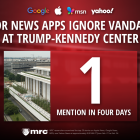Meta’s “independent” Oversight Board is doubling down on its track record of pushing censorship with a slew of new, concerning decisions.
On April 23, the Meta Oversight Board published eleven decisions addressing a diverse array of content from appeals on three different continents, including drag performances, transgenderism, apartheid and illegal immigration. In six of the cases, the Board overturned Meta’s decision to allow content to stay on its platforms, with the Board arguing that the cases examined somehow contributed to “discrimination,” incitement and heightened risks of violence, or ran afoul of Meta’s hateful conduct policies. Ultimately, it seems clear that the Board overall is not following along with Meta’s rhetoric with regard to moving toward a more free speech approach to “content moderation.”
The Board threw a bone to free speech advocates by agreeing with Meta for allowing criticism of “transgender” peoples’ use of bathrooms or participation in athletic events of the opposite biological sex. “[T]hey related to matters of public concern and would not incite likely and imminent violence or discrimination,” the Board claimed. It also ruled that images of South Africa’s former national flag, which is associated with apartheid, could remain on Facebook.
But the Board overturned Meta in multiple cases concerning users in the UK, Germany and Poland who criticized mass illegal migration, and, in the UK cases, the plague of serious Muslim migrant crime. Three decisions on posts made during the summer 2024 UK unrest over mass migration were unanimous, as the Board asserted “the posts [must] be taken down from Facebook because the likelihood of their inciting additional and imminent unrest and violence was significant.”
In yet another endorsement of censorship, the Board also demanded Meta censor speech it vaguely defined as allegedly “dehumanizing” disabled people.
Shockingly, the only decision in which the Board urged Meta to restore content that had been censored related to an explicit and provocative drag performance. Meta removed the video for containing “a banned slur,” the Board pontificated, but “the term was used in a self-referential context, which Meta’s policies expressly allow.” The Board “noted that incorrect removals like these not only affect freedom of expression, but can also impact livelihoods of the persons involved.”
Yet where is the Board’s concern about freedom of expression or the impact on livelihoods in the examples of users criticizing illegal immigration, “particularly in the already inflamed atmosphere surrounding an election in which migration policies were a major political issue”?
Indeed, the Board has a long track record of attacking free speech, and this continues with its latest series of decisions. But perhaps that is not surprising as most (at least 16 members) of the Board is composed of non-Americans who do not have a First Amendment perspective.
For example, in January 2023, the Board criticized Meta’s decision to reinstate President Donald Trump’s accounts. More recently, in February, the Board bashed Meta CEO Mark Zuckerberg’s planned free speech reforms, including an overhaul of fact checking. In 2024, Board member Kenji Yoshino admitted the Board doesn’t prioritize the First Amendment.
Conservatives are under attack. Contact Meta here and demand that Big Tech and government be held to account to mirror the First Amendment while providing transparency, clarity on hate speech and equal footing for conservatives. If you have been censored, contact us using MRC Free Speech America’s contact form, and help us hold Big Tech accountable.









